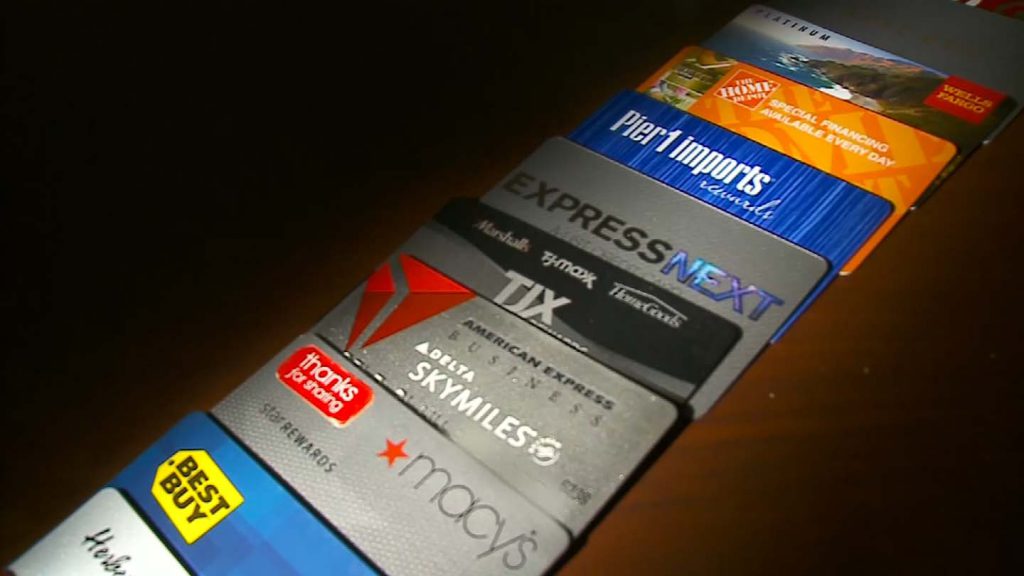
When you use a credit card to make a purchase, you may be motivated to apply for a store card. Many people think these cards are the same, but there are differences. Discuss the differences between store cards and credit cards and help determine if you need to apply for a store card.
The U.S. is a shopping paradise with many retailers offering clothing, food, electronics and more. Wise shoppers often like to find the best prices through sales, discounts and other offers. But because many stores have their own cards, while offering better deals, you may not want to just use your regular visa card.
What is a store credit card?
A store credit card displays the dealer’s brand, but is issued through a financial institution that partners with the dealer. This may mean that the card only works online or in certain stores, but other store cards display the logo of a major chain, such as MasterCard or Visa, and that these cards work wherever they are allowed.
These cards usually offer special offers, such as zero-interest loans, discounts, shopping offers and points. If the card works anywhere, certain benefits may be extended to purchases from other vendors, but may be limited. So it’s important to choose a store card that has the flexibility and benefits you need.
Store cards vs. credit cards
A store card is usually a credit card that can only be used at a particular store. Retailers work with banks to provide their customers with these revolving credit limits. Store cards encourage customers to buy items with their credit cards today and pay them back over time. The advantage of the store is that it’s stuck in an ecosystem, and the advantage is that it can only benefit cardholders.
The main difference between a store card and a credit card is that usually a store card can only be used in a certain store, but a credit card can be used wherever a credit card is available.
What are their advantages and disadvantages?
Discounts, rebates, and cashback
The main advantage of using a store credit card is that it usually offers discounts when you shop at that store. And many store credit cards offer much more, such as some benefits. Here are some examples of cards recently issued by some major retailers. (However, Terms and Conditions may change over time, so check again before you sign up in a hurry, and these rates are limited.)
Building Credit.
Using a store credit card can also help you get credit. If you pay your expenses and then set a record for paying your bills on time, your credit score can go up. Store credit cards can be especially useful because credit points are often assigned to people who are not eligible for other credit cards. On the other hand, they also tend to have lower credit limits. This is a problem when creating a credit score. This is because the total available credit rate (utilization ratio) has a big impact on your score. (It’s usually best to use a ratio of 30% or less.) If you use a store credit card, try to hide your balance.
Spend more.
Of course, like other credit cards, store credit cards have their dark side. Studies have shown that using a credit card instead of cash can cause many people to spend more money. Spending more than you need or want is bad enough, but credit cards also make it easier to accumulate debt. What’s worse, credit card debt is almost always covered by very high interest rates. Even these days, the best interest rates on credit cards are close to double digits. The best savings account is 1.4%, a mortgage with a 30-year repayment period can be obtained at 4% or 5%. Interest rates on some store credit cards are close to 30%.
“Deferred Interest.”
There is also a risk if you use a store credit card offer to buy things “interest free” if you pay for them within a certain period of time. This is likely to be a “deferred interest” scenario, which can be costly. For example, imagine you buy a $1,000 laptop and pay back $900 over an interest-free period. You might expect to be charged interest on the remaining $100, but instead many cards will charge interest on the entire $1,000! This could cost you hundreds of dollars.
Credit rating risk.
The final problem is that too many credit cards can lower your credit rating. This is because the average score for creditors such as credit cards and old accounts is lower, especially if there are many credit cards or most new ones. So consider getting one or more store credit cards for the stores you shop at most often.
What are the tips for using them?
Before you apply for a credit card at any store, consider whether you’ll make enough purchases at the retail store to qualify for benefits, especially if the card is invalid elsewhere. Keep in mind that opening too many store credit card accounts can hurt your credit score and encourage you to spend more than you should. When using this card, you should consider your budget, avoid late payments, and pay attention to when special financing ends so you don’t end up with unwanted interest.
For the best results with your store credit card, consider paying in full each month. This allows you to reap the benefits and avoid the interest burden and other drawbacks of debt. Also, be careful of special promotions that retailers may offer, especially during the holiday season, so you don’t miss out on potential rewards for members.



GIPHY App Key not set. Please check settings